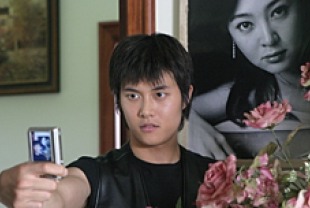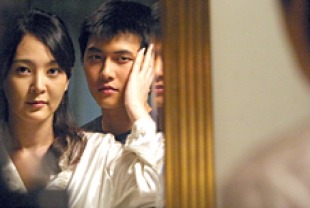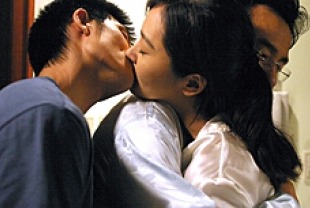What a strange and wonderful world we live in, filled with so many mysteries. Who can explain the staggering wealth that allows rich people to own houses in multiple places and be perfectly willing to leave them empty except for brief visits? Who can make sense out of the variety of ideas and ideals revolving around freedom? Is that person truly free who has the most toys or does liberation only come from not being attached to things? And then there's love, which exercises the minds and imaginations of novelists and poets and filmmakers yet eludes any reasonable explanation. For example, how can a man who beats his wife claim to love her? And in this world of constant noise and repetitious chatter, is silence a golden gift given to only the lucky few?
The immensely daring and talented Korean filmmaker Kim Ki-duk (Spring, Summer, Fall, Winter . . . and Spring) has taken on these mysteries in this mesmerizing film. Prepare yourself for this unusual cinema experience by calming your mind and taking a few deep breaths.
Tae-suk (Jae Hee) owns a motorbike and not much else. During the day he posts advertising flyers on the doors of houses and apartments. At night, he breaks into a place where the flyer remains on the door. A quick check of the message on the phone answering machine usually confirms that the residents are away on a trip or visiting friends. Tae-suk is not a thief. On the contrary, he has such a love of other people's objects that if he finds something broken, he fixes it. He also waters and mists the plants. Often he does the wash and leaves the place in better condition than it was when he arrived. These caring ministrations, these effortless acts of courtesy, make him into an extraordinary young man.
The ritualistic life of this silent drifter is upended when he enters a luxurious home and does not notice that the woman of the house is still there watching him go about his routines. Sun-hwa (Lee Seung-yeon) is a beautiful model whose husband, Min-kyu (Kwon Hyuk-ho), has beaten her and left in a fit of anger. Seeing her, Tae-seok quickly leaves but after witnessing her on the phone with her husband, he goes back to comfort the emotionally depleted woman. When her violent husband comes home, the outsider punishes him using golf balls hit by a 3 iron. Tae-suk and Sun-hwa flee on his motorbike. Their relationship unfolds in a series of stays at other houses. No words pass between them but their bodies commune at last when they share a bed.
Kim Ki-duk has said of this unusual film:
We are all empty houses
Waiting for someone
To open the lock and set us free.
One day, my wish comes true.
A man arrives like a ghost
And takes me away from my confinement.
And I follow, without doubts, without reserve,
Until I find my new destiny.
3-Iron is a magical love story that slowly enters our consciousness with little details and small incidents. Sun-hwa relaxes into a new way of being but it does not last for long. In one of the houses, they discover the dead body of an old man. Tae-suk buries him outside with the same respect he gives to the objects he repairs. But when the man's son arrives, the two intruders are taken away by the police and Tae-suk is charged with murder, trespassing, and kidnapping. Sun-hwa is sent back to her husband.
It is fascinating to watch how this serene young man draws out the anger and the hatred of the police investigator and a young guard. They are intimidated by his silence and baffled by their inability to understand why he does what he does. During his incarceration Tae-suk finds a way to transcend the prison and the dreary world that is now his fate. The means and the method are a mystery but then so is the ability of some people to walk lightly upon the earth and leave no traces of their presence. They are the heroes, not overburdened by possessions or dragged down by cultural conventions about work, success, and making money. From a spiritual perspective, we call them subversive liberators.
DVD special features include an audio commentary with director Kim Ki-Duk.


